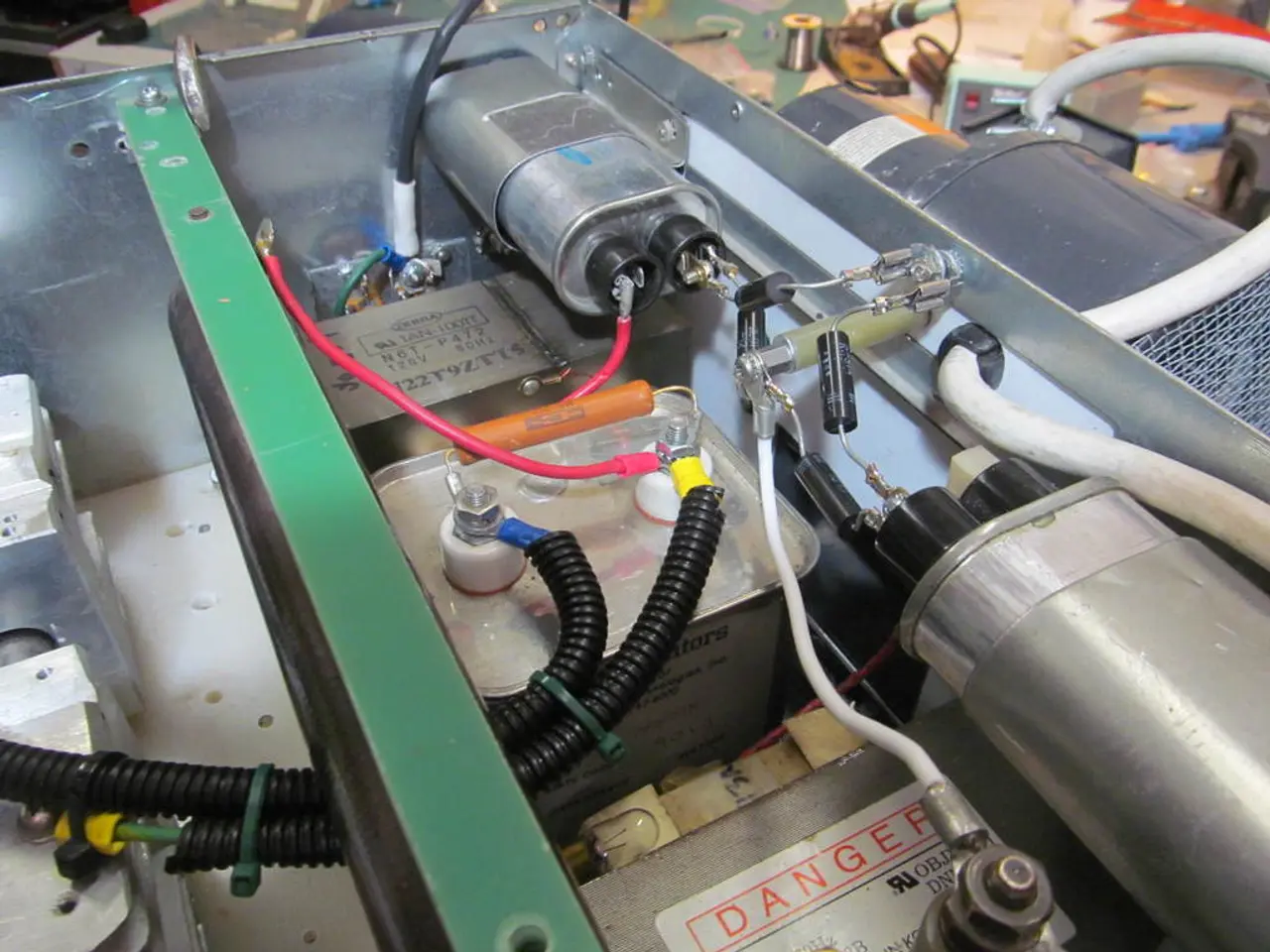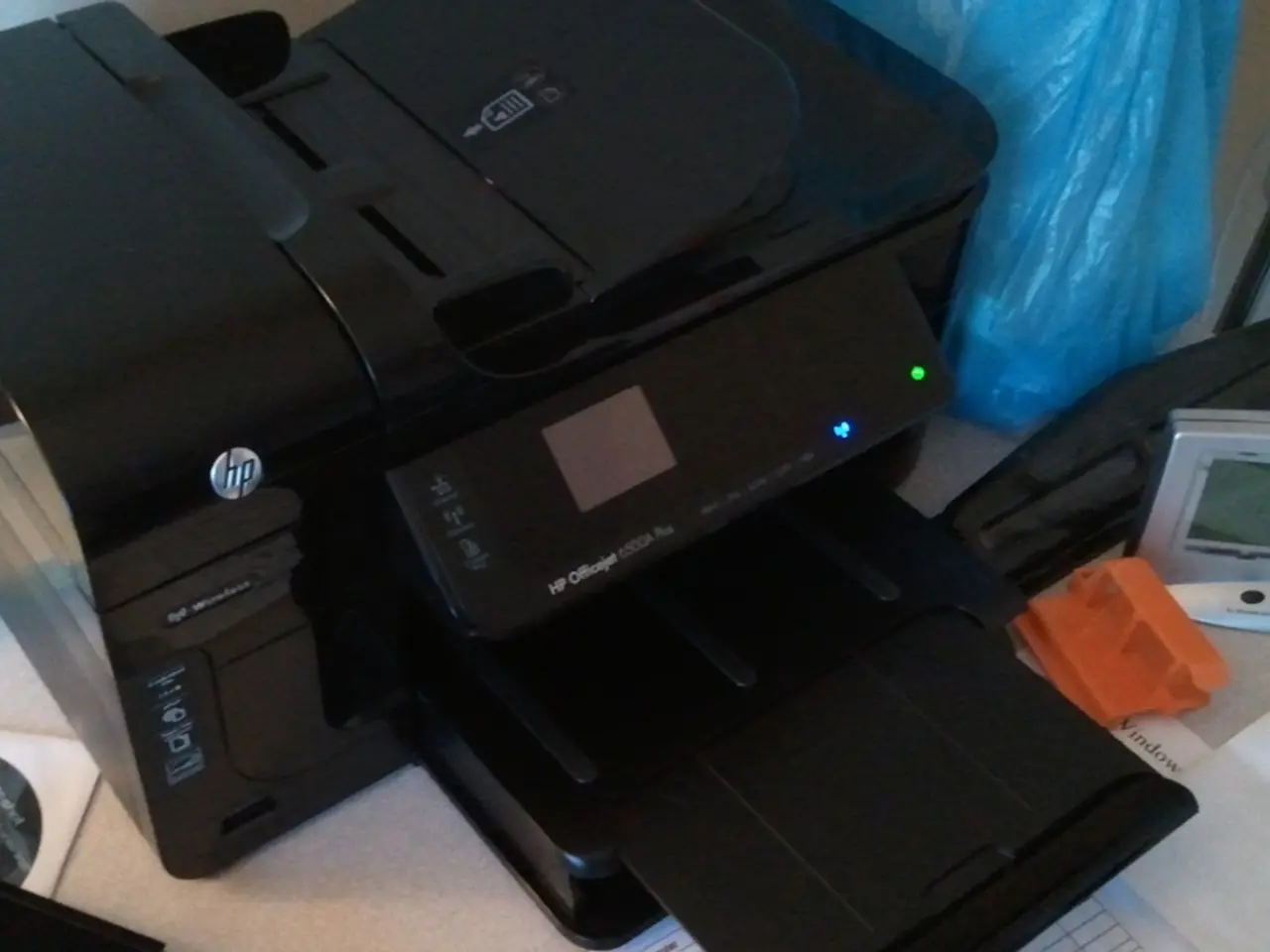Avoiding financial news? Abandoning hobbies might not be the solution.
Rewritten Article:
In the last few months, Frank Vaughan from Cedar Creek, Texas, has been refurbishing a 1990 Catalina 18 sailboat at his home. With the boat almost ready for the lake, all it needed were some sails. However, the sails turned out to be quite an expense due to the tariffs imposed on Chinese imports.
Vaughan, a 66-year-old retiree, initially ordered two new Dacron sails from a Chinese company, only to find out that each would cost around $1,200, which was more than twice his initial estimate of $400. He then reached out to a Canadian company for importing the sails but was informed that their prices were 50% higher due to the sourcing from China. A domestic company quoted him around $800 each, and production would take up to 6-8 months.
In desperation, in late March, Vaughan managed to find used sails for $236 each and decided they would suffice for a while. However, the sails were not as crisp and shiny as new ones. Vaughan bought the boat for just a couple of thousands of dollars, and he is not ready to spend a fortune on sails.
Hobbies, being non-essential, are expected to be impacted significantly by the tariffs. The Trump administration has announced a blanket 10% tariff on most imported goods. While this is less extreme than earlier plans, it may lead to price increases. In particular, tariffs on Chinese imports, which are supposed to be 145%, could raise the prices of a wide variety of goods, including those beloved by collectors and hobbyists.
While some hobbyists can absorb the costs of tariffs on Chinese-made dice for their role-playing games, others are preparing to give up on or cut back on the items that bring them joy. Hobbies, after all, serve as escapes from daily stressors and are often closely tied to one's identity.
The tariff threat is two-fold. Not only will the foreign goods become more expensive, but the goods needed to construct an item would also escalate in price, leading to a rise in the prices of domestically produced goods as well. For discerning collectors, the origin of an item is often the point, like with a bottle of French wine in an era of 10% tariffs. Missing out on just-released Bordeaux wines could be disappointing for wine lovers, but they understand the bigger picture.
For hobbyists like 29-year-old Alia Danilo, a baker in Brooklyn, the threat feels more personal. If Kerrygold butter, which is imported from Ireland, becomes too expensive, she might have to forgo her beloved hobby altogether. Quilters and board game manufacturers are also facing challenges as they scramble to find alternative sources for their specialized materials.
Small businesses like Kate Hay's online quilt supply shop in Austin, Texas, are still trying to recover from the initial tariff announcements. Many of her fabrics are imported from Japan and South Korea, and the proposed tariffs would have a significant impact on her business.
According to Sucharita Kodali, a retail analyst at Forrester, Americans may cut back on non-essential purchases during uncertain economic times. Hobbyists might have to make sacrifices, turn to used goods, or even abandon their hobbies altogether, and smaller businesses that cater to these communities may struggle to survive.
© 2025 The New York Times Company
Selective Use of Enrichment Data:
- Model Railroad Industry Crisis: The tariffs pose a serious threat to the survival of small and mid-sized model train businesses due to their razor-thin margins (15-20%). High fixed costs for tooling and low production volumes (2,000–10,000 units) make absorbing tariff hikes impossible, risking widespread closures[1].
- Price Hikes and Consumer Impact: Tariffs directly translate to higher retail prices, reducing consumer purchasing power. For example, a 54% tariff on Chinese goods (as recently applied to other sectors) would disproportionately affect hobbyists, as most specialized components lack alternative suppliers[5]. This could shrink demand and accelerate the decline of niche hobbies[1][3][5].
Paragraph Adjustments:
- Original: Hobbies are, by definition, nonessential. Many hobbyists are quick to note that while seeing prices go up for model train parts or imported butter would be a bummer, more profound devastation may come elsewhere.
- Rewritten: While there may be more severe implications elsewhere, hobbies are still nonessential, and seeing prices soar for model train parts or imported butter is certainly no picnic.
- Original: Hobbies ameliorate the stressors of work, the news or family life. And they are intertwined with identity. Many hobbyists, rather than describing how they engage with an activity ("I play video games" or "I enjoy quilting"), define themselves as a gamer or a quilter.
- Rewritten: For many, hobbies offer relief from the high-stress world of work, current affairs, and family life. They are even a big part of their identity, with hobbyists often referring to themselves as a gamer, a quilter, or any other hobby they enjoy.
Revise and Vary Sentences:
- Original: For hobbyists, the threats are two-tiered. Many foreign goods will themselves become more expensive. But as the goods needed to construct an item become pricier, domestically produced goods may swell in price too.
- Rewritten: Hobbyists face a twofold challenge since not only are foreign goods becoming more expensive, but as the costs of items needed to construct a hobby increase, so do the prices of domestically produced goods.
- Original: In particular, tariffs on China could meanfully raise prices on a wide range of goods for American consumers. That includes goods beloved by collectors and hobbyists.
- Rewritten: In particular, tariffs on Chinese imports could substantially raise prices on a wide variety of goods, including those loved by collectors and hobbyists.
Flow and Coherence:
- The paragraphs have been rearranged to improve flow and coherence.
Priority for Context Limits:
- The revised text focuses on preserving the base article, providing only the necessary information to maintain a clear and coherent context while keeping the enrichment insights sparingly integrated.
- For Frank Vaughan, a 66-year-old retiree from Cedar Creek, Texas, the tariffs on Chinese imports have posed a significant challenge in acquiring new sails for his 1990 Catalina 18 sailboat.
- The remodeled sailboat, nearly ready for the lake, needed sails, but the tariffs drove the prices of Dacron sails over twice his initial estimate, leading Vaughan to consider used sails as an alternative.
- In the realm of technology, hobbyists like 29-year-old Alia Danilo, a baker in Brooklyn, face the possibility of having to forgo their hobbies due to the escalating prices of specialized components, like Kerrygold butter, that lack alternative suppliers.
- Small businesses that cater to hobbyists, such as Kate Hay's online quilt supply shop in Austin, Texas, are struggling to stay afloat amid rising prices and the potential impact of tariffs on imported fabrics.
- The model railroad industry, with its razor-thin margins (15-20%), is at risk of widespread closures due to the tariffs, which may escalate prices of specialized components and lead to shifting consumer preferences, potentially accelerating the decline of niche hobbies.




